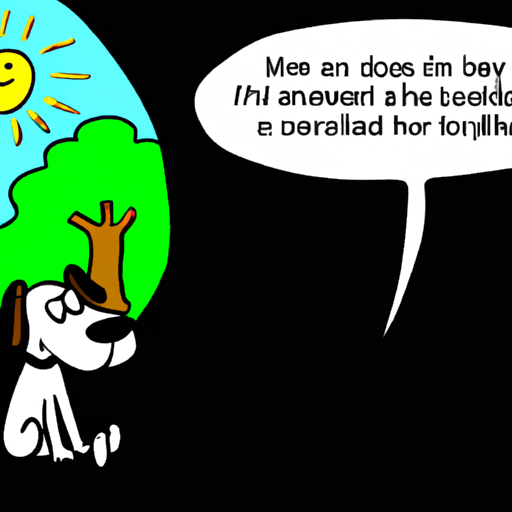Depression isn’t a condition that affects humans alone. Surprisingly, our furry companions, dogs, can also experience bouts of sadness, lethargy, and overall depressive behavior. But what causes dogs to get depressed, and how can we, as caregivers, identify and address this issue? Let’s delve into this fascinating topic and explore the reasons behind canine depression.
- Table of Contents
- Understanding Canine Depression
- Causes of Canine Depression
- Signs of Depression in Dogs
- Treatment for Dog Depression
-
Frequently Asked Questions
-
Key Takeaways
- Dogs can get depressed, similar to humans.
- Environmental changes, loss, and physical health problems can trigger depression in dogs.
- Changes in behavior, appetite, and activity levels can indicate depression in dogs.
- Treatment often involves environmental enrichment and, in some cases, medication.
Understanding Canine Depression
Depression in dogs, much like in humans, is not always easy to understand or diagnose. However, we know that dogs have a rich emotional life and form strong bonds with their humans and other animals. When their emotional balance is disturbed, dogs can indeed show signs of depressive behavior. PetMD offers a comprehensive guide on this topic.
Causes of Canine Depression
Several factors can lead to depression in dogs:
- Environmental Changes: Dogs thrive in predictable environments. When significant changes occur, such as moving to a new house or introducing new family members, they can become stressed and depressed.
- Loss: Dogs form deep bonds with their humans and animal friends. Losing a loved one can trigger a mourning period, which can lead to depression.
- Health Problems: Physical discomfort or illness can also cause depression in dogs. Chronic pain, for instance, can lead to a significant change in a dog’s mood and behavior.
For more information about dog behavior and emotions, this OneTopDog article provides insightful information.
Signs of Depression in Dogs
Identifying depression in dogs can be challenging, but there are a few signs to look out for:
- Change in appetite: Dogs may eat less when depressed, leading to weight loss. Some might eat more, resulting in weight gain.
- Loss of interest: Depressed dogs often lose interest in playing and exploring. They might sleep more than usual or seem generally lethargic.
- Pacing or repetitive behavior: Some dogs might start to pace or exhibit repetitive behavior.
To better understand these behaviors, OneTopDog offers a detailed guide.
Treatment for Dog Depression
If you suspect your dog might be depressed, it’s important to consult with a vet or a professional dog behavioral therapist. They can rule out any physical illnesses and provide a proper diagnosis. Treatment often includes:
- Environmental enrichment: This can involve providing new toys, more playtime, or more interaction with other dogs or people.
- Medication: In some cases, dogs might need antidepressants or anxiety medication. However, this is usually a last resort after other treatment methods have been tried.
For more tips on dog care, check out this OneTopDog guide.
Frequently Asked Questions
Can dogs get clinically depressed?
Yes, dogs can suffer from depression, but it is usually triggered by a significant event or change in their lives.
How long does dog depression last?
Depression in dogs can last anywhere from a few days to a few months. It largely depends on the underlying cause.
What can I do if my dog is depressed?
If you believe your dog is depressed, consult a vet or a professional dog behaviorist. In the meantime, try to provide extra attention, playtime, and environmental stimulation.
By understanding the causes, signs, and treatments for dog depression, we can better care for our furry friends and ensure they live happy and healthy lives.



